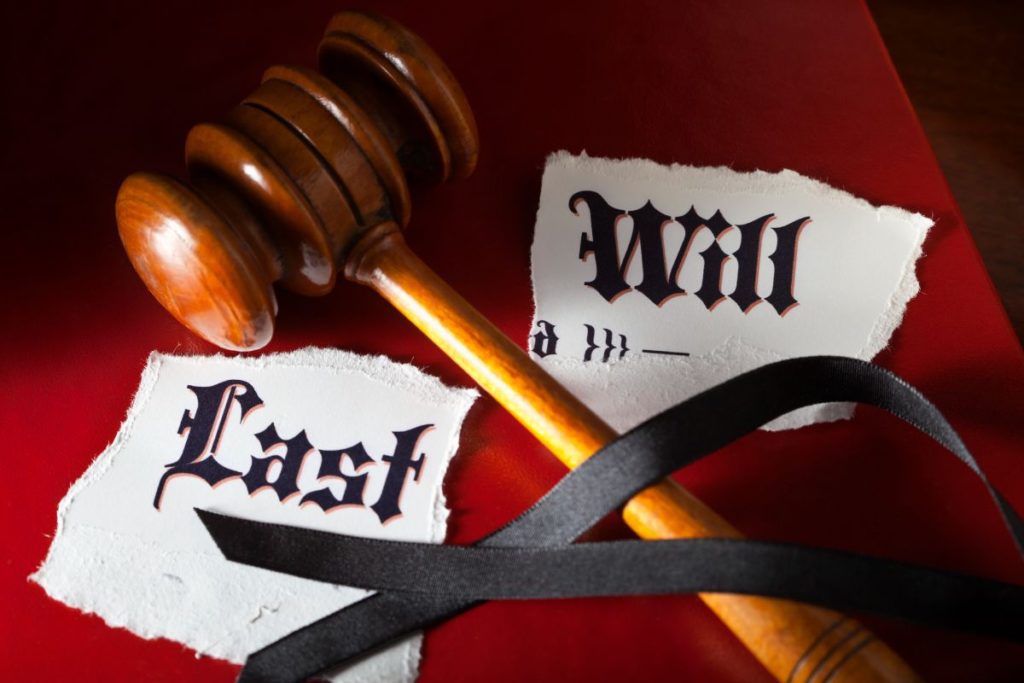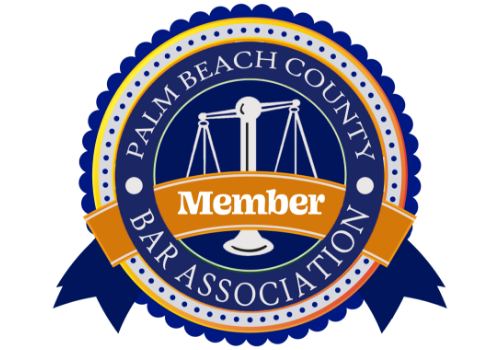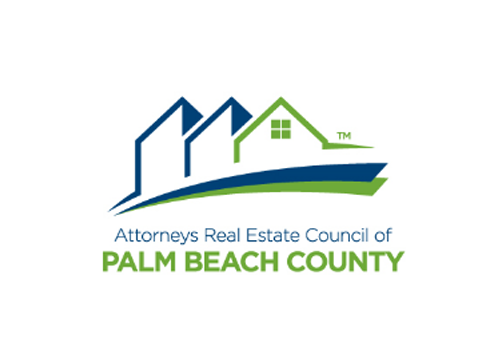
Law Blog
Probate of Lost or Destroyed Will

Help! I’ve lost the Will (and Testament)!
Probating an estate when the original Will is nowhere to be found
Probating a Lost Will in Florida: Where to Turn To, and the process involved
Things to Consider
Probating an estate when the original Will is nowhere to be found
Life happens. Things get moved, misplaced, and forgotten, often with the intent that the new place for said things will be safer than where they once were, only for them to never be seen again. It is often frustrating enough when this happens to things like keys, wallets, or phones, but what about when it happens to something even more important; say, your (or a loved one’s) estate planning documents?
While the thought of placing one’s most important estate planning documents, like a Will or Trust, in any place but the most secure and memorable places seems an impossibility, to reiterate how this article began: Life happens. People move from home to home, state to state, country to country, in a constant shuffle of packing and unpacking; organizing and reorganizing; cleaning out and re-shuffling. Before long, what was once in a place that was memory-proof and readily available devolves into “Now where did I last have those documents?”.
The probate process alone can be stressful enough, without the unexpected complication of a lost Will. But all is not lost when one faces this challenge. Fortunately, the Florida legislature has measures in place for when “life happens”, and it can still be possible to probate what has become a lost Will, albeit with a few extra steps required in the process.
Probating a Lost Will in Florida: Where to Turn To, and the process involved
Before a Lost Will can be probated, the existence and validity of that lost Will must first be established with the Court sitting in jurisdiction via a Petition to Establish and Probate a Lost Will. The Florida Legislature offers two pertinent points of reference to help facilitate the probate of a lost Will; Florida Statute 733.207 “Establishment and Probate of a Lost or Destroyed Will”, and Rule 5.510 “Establishment and Probate of a Lost or Destroyed Will”, of the Florida Probate Rules. Chapter 733.207, of the Florida Statutes states the following on the matter:
“Any interested person may establish the full and precise terms of a lost or destroyed Will and offer the Will for probate. The specific content of the Will must be proved by the testimony of two disinterested witnesses, or, if a correct copy is provided, it shall be proved by one disinterested witness.”
The Florida Probate Rules breaks this down further, outlining the necessary steps required for the establishment and probate of the lost or destroyed Will. The Petition itself must include the following:
– All pertinent information as would be required for a Petition of Administration.
– A statement of the facts constituting grounds on which relief is sought.
– A statement of the contents of the Will or, if available, a copy of the Will.
In the event that a copy of the Will exists, that copy Will need to be validated by one of the two witnesses to the Will, who will attest to the accuracy and legitimacy of the document being proposed to the Court as the Decedent’s Last Will. If no copy exists, the specific contents of the lost Will must be affirmed and attested to by two witnesses.
The Florida Probate Rules additionally provide that “no lost or destroyed Will shall be admitted to probate unless formal notice has been given to those who, but for the Will, would be entitled to the property thereby devised”. In short, the Florida Probate Courts will not admit a proposed lost or destroyed Will without notice first being given to those that would inherit the Decedent’s property without the Will.
If the testimony of the one or two witnesses (depending on whether there is a copy of the Will or not) is deemed satisfactory to the Court in light of all other evidence provided in support of the establishment of the Lost or Destroyed Will, the Court will order that the contents of the lost Will be probated in accordance with the proposed statements provided. From there, the probate process would continue on as any other standard probate.
Things to Consider
While the process of establishing a lost or destroyed Will seems relatively straightforward, there are some things worth keeping in mind that may make the process more complicated or difficult.
– In regard to the requirement of providing the testimony of one or two of the witnesses to the Will, it may be difficult, or in some cases impossible, to obtain that testimony. The witnesses may have moved or have passed away themselves. In the case where a Will is lost or destroyed and no correct copy exists, simply identifying the witnesses themselves may prove to be a daunting task.
– If you are able to locate the witnesses, those witnesses must be able to recall the terms of the document if there is not a copy available to verify. Often times, it may be months or years since the initial execution of the documents. We as people forget what we had for lunch a week and a half ago, so recalling the exact terms and provisions of a Will in which someone served only as a witness to the execution may be an extremely difficult bar to meet.
– Florida law presumes that, in the absence of a Will that was known to previously exist, that the Testator of the Will intentionally destroyed it. In this case, it is the burden of the Personal Representative to prove that the Will was not intentionally destroyed by the Testator, which is difficult to prove, as we can not ask the Testator themselves.
– It may be possible to circumvent some of the headache involved in the establishment of the lost or destroyed Will by obtaining waivers from all heirs who would stand to inherit in the absence of the Will. But, just one hold-out on signing waivers will negate this as an option.
– The process of establishing a lost Will can be time-consuming and expensive, depending on the nature of the estate, the disposition of the beneficiaries, the difficulty in identifying and obtaining relevant testimony of the witnesses, to name a few factors. It may ultimately be in the best interest of the estate and those who stand to inherit from the estate to simply proceed with an intestate administration (Intestate Administration = Administration of an estate without a Will, based on the procedures set forth in the Florida Intestacy Statutes), rather than consume estate resources through the establishment process.
Ultimately, the probate of a lost or destroyed Will is possible, but not without a few extra steps along the way. Every estate is different, and will present their own unique circumstances, obstacles, and challenges when determining whether it is worthwhile to go through the establishment process. You should consult with an experienced estate planning attorney regarding the specific facts and circumstances of your situation, and weigh the options that are available to you. The estate planning and probate attorneys of Scott, Harris, Bryan, Barra & Jorgensen, P.A. are on standby and ready to assist you in evaluating your loved one’s probate estate, and helping you determine what is the best course of action for you and the beneficiaries of said estate. If you would like to discuss, call (561) 624-3900 to set up a consultation to review your probate matter.
This blog has been drafted based on the opinions of the authoring attorney, and does not strictly represent the views of the firm. The information contained in this blog is provided for educational purposes, and should not be construed as providing specific legal advice. The author of this blog does not make any representations regarding the accuracy of the information provided, and you should consult a probate attorney regarding the options that may be available to you prior to submitting any court proceedings in relation to the above.
The information provided in this article does not, and is not intended to, constitute legal advice; instead, all information, content, and materials available in this article are for general informational purposes only. Information in this article may not constitute the most up-to-date legal or other information. Readers should contact an attorney to obtain advice with respect to any particular legal matter. No reader, user, or browser of this article should act or refrain from acting on the basis of information in this article without first seeking legal advice from counsel in the relevant jurisdiction. Only your individual attorney can provide assurances that the information contained herein – and your interpretation of it – is applicable or appropriate to your particular situation.
The views expressed at, or through, this site are those of the author writing in their individual capacity only – not those of Scott-Harris as a whole. All liability with respect to actions taken or not taken based on the contents of this site are hereby expressly disclaimed. The content on this posting is provided “as is;” no representations are made that the content is error-free.
recent post


Navigating Lease Approval in South Florida Business Sales: A Guide
April 8, 2024
No Comments

Secure Success with a South Florida Business Sale Attorney
April 4, 2024
No Comments









